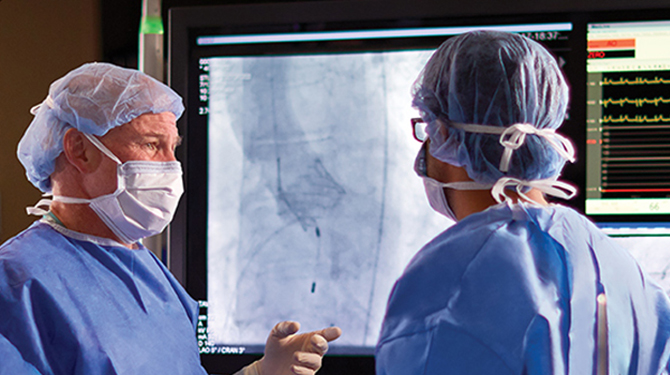
Structural heart disease is an abnormality to the formation of a patient’s heart, including its valves, walls, or chambers. These defects could be present at birth (congenital) or develop over time.
At the Heart Center at Mercy Hospital of Buffalo, we are proud to be at the forefront of interventional cardiology, as a regional leader in cardiac surgery and valve repair. With a team of specializing physicians, state-of-the-art technology, and award-winning attention to safety standards, our Heart Center is able to offer cutting-edge procedures that prioritize patient care and lead to quicker recovery.
Structural Heart Procedures
Structural heart disease does not need to be corrected in all situations, but certain patients may be at high risk for stroke or other life-threatening medical conditions, depending on their health history, age, and lifestyle habits.
With the right doctors and advanced technology, these innovative procedures act as a one-time fix for conditions that would otherwise be lifelong problems.
The structural heart procedures at the Heart Center are all cardiac catheterizations, meaning they are minimally invasive. This ensures a quicker, easier recovery, and allows our team to treat patients who are not ideal candidates for traditional open-heart surgeries.


